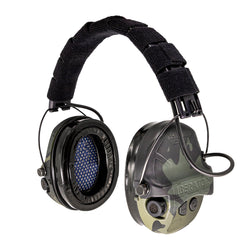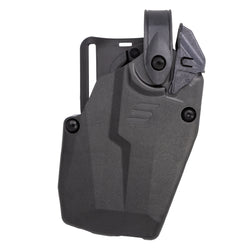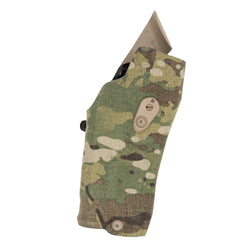Exploring off-grid is an extremely hot topic and has only been gaining momentum for the last few years. Unfortunately, not everyone is as prepared as they should be. Having grown up exploring the outdoors and now seeking off-grid adventures with my family, I know that being prepared is paramount. Even the little things can make a big difference.
Disclaimer: My experience comes not just from frequent off-grid adventures, but also from being a trained EMT on my local mountain search and rescue team. Not only that, but my husband has been an active member in search and rescue since the mid-90s. The list of gear we take into the field isn’t exhaustive, but it’s a good starting point for folks looking to round out their gear.
Why Preparation Matters
Going off-grid or into the backcountry comes with its own inherent risks. With limited communication and slower response times, it’s imperative to be able to take care of yourself, at least to a certain degree. While having a basic first aid kit is nice, going beyond the basics is just a smart idea.
Additionally, having a way to communicate with someone in the front country could go a long way. Simple options, like sending pre-populated messages from GPS units, can help calm a worried person waiting for your return. Other messaging devices allow for texts via satellite, providing additional information and flexibility. Being able to provide your location and information on your potential injuries can make a world of difference.

SELF-RESCUE & READINESS
A key point in going into the backcountry or off-grid means you have to be able to take care of yourself with any possible outcome. You can’t rely on people coming to save you, so having the right gear at the right time can save your bacon.
Even small issues off-grid can spell big problems. A few short examples to help illustrate the point.
1. My son is allergic to certain bug bites. While it’s not an issue of anaphylaxis, he does blister and can bleed if we aren’t careful. It is a major point of comfort to have after-bite care for him.
2. I am prone to migraines if I push myself too hard. On one off-grid trip, I was having serious problems after a hike with intense pain and couldn’t keep any food or drink down. Thankfully, we had electrolyte mixes in our kit and I was able to slowly rehydrate myself and avoid a trip to emergency care.
3. On a front-country camping trip with no cell service, some of the folks were carving wood. One friend’s tool slipped, and they cut their arm decently. Immediate bleeding control was necessary to be able to transport for medical care. We were able to keep the rest of the group informed of the progress via satellite communications.
In each case, we were prepared thanks to our well-stocked medical kits and reliable communication devices. If any one of those pieces were missing, the trips would have been uncomfortable or downright deadly.

Must-Have Gear for Off-Grid Adventures
All that being said, you need to know your own limits, have some know-how, and be ready to act. A general rule of thumb is the adage “Two is one, one is none.” We always have a backup option ready to go if the first one fails. Here’s a breakdown of the top items we take with us on every outing and why.
Communication Gear
We generally bring multiple communication options. Our standard setup is a hand-held radio in the truck and cell phones with satellite messaging enabled. Those items are pretty self-explanatory, and they allow for simple communications as needed on the road.
For extra flexibility, we use a Garmin In-Reach if we’re leaving the truck to hit the trail or while in camp. It lets us send messages over satellites and stay in touch even far from cell coverage. Recently, we added a Starlink Mini, which allows communication anywhere with a clear sky. It has come in handy for my husband to check in while he’s out adventuring and even while on Search & Rescue calls. (His SAR unit has since deployed its own Starlink Minis after experiencing the usefulness of our unit.)
First Aid & Medicines
First order of business in a good first aid kit is bleeding control and wound care. Obvious items to include are: tourniquet(s), gloves (because if it’s wet and not yours, don’t touch it), bandages, and alcohol wipes. Other things to consider would be closures for wounds, gauze, and wound tape for larger injuries.
If you haven’t yet, it’s a good idea to get some training on how to stop a bleed.

Beyond wound care, we include splints, tweezers, tick removal tools, and pain medication—aspirin, acetaminophen, and an ibuprofen option, because each works in its own way and can affect people differently.
Other essentials: allergy medicine, electrolyte mixes, bug bite aftercare, and eye flushes. Electrolyte mixes, like Liquid IV or Gatorade powders, are now a standard for me, given my previous experience. The bug bite aftercare, like a Benadryl stick or similar antihistamine ointment, can make the off-grid experience an easier one, and is used by at least one family member on each trip.
BOTTOM LINE
These aren’t the only items in our kits, but they’re the major pieces. I’m a huge proponent of being smart before heading off-grid. Make sure you know where you’re going, have a communications plan before you leave, be prepared with your gear, and know your exit routes.
End of the day, be an adult and take care of yourself so someone else doesn’t have to do it for you.









